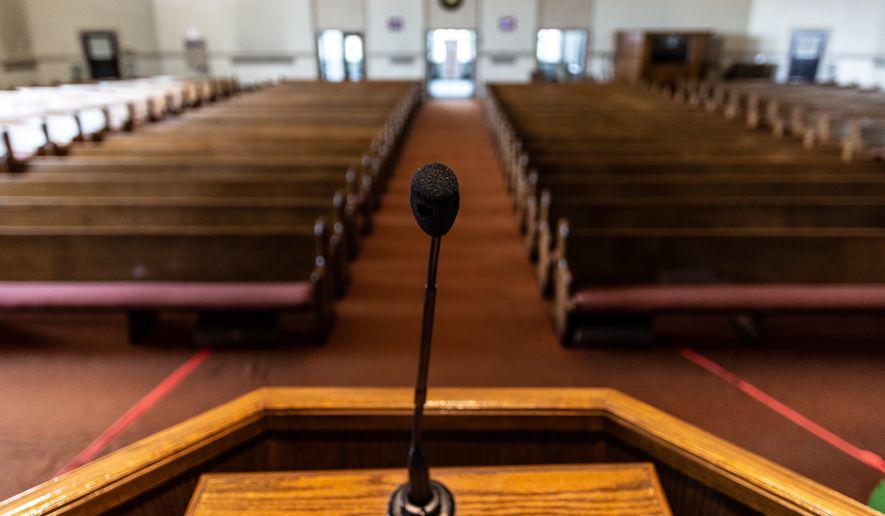Making direct connections to young adults aged 13 to 25 is needed to help members of Generation Z overcome mental health issues and form sound spiritual connections, the executive director of a research group studying the cohort said Wednesday.
Clergy and lay leaders can no longer wait for young adults to walk into a facility because many of them just do not do that anymore, the study found.
“It’s the faith leader’s job to make the step out of the building to go and find them, engage them, figure out what they need, and be in [a] relationship with them,” said Josh Packard, executive director of the Springtide Research Institute, which released a study showing that young adults are finding faith, but also falling away from institutional affiliations.
“That’s really what all this comes down to. Young people need relationships with trusted adults, and those sort of disintegrated over the course of the pandemic,” while young adults “were not in great shape leading into it,” added Mr. Packard, a sociologist.
If these young adults are not going into worship centers, he said, then leaders need to go not only to skateboard parks and bicycle runs, but “also [the] virtual and online spaces. One of the things we say as a real shorthand of thinking about this is, ‘When young people are doing things that they care deeply about, and they look to their left, and they look to their right, do they see you there with them?’”
Such connections may be vital as Generation Z regroups after two years of isolation, which for many came during a period when socialization with others — and guidance from adult leaders — is important in forming social skills and reinforcing spiritual values, he said.
The Springtide survey revealed that 30% of people aged 13 to 25 say their faith has grown during the pandemic, more than those who said it weakened (18%) or was lost completely (8%).
Mental health tops the list of pandemic-related concerns, Springtide said in announcing the survey results. More than half of those surveyed, 53% listed mental health as their top challenge.
At the same time, 48% of those responding say they are either “moderately” or “extremely depressed,” with 25% also saying they’re “extremely stressed.” Extreme anxiety was reported by 26% of respondents, while 21% said they’re “extremely lonely.”
The number reporting no connection with a higher power “at all” fell from 36% in 2021 to 27% this year, the group reported. And, the survey noted, 61% of those in Generation Z agreed with the statement, “the adults in my life don’t truly know how much I am struggling with my mental health.”
While personal faith is ticking upward, the canvass of 1,796 members of the cohort shows young adults are moving away from religious communities.
Results indicate that 44% of young people say they “never” attend worship services, up from 30% last year. A quarter of those surveyed (26%) say their relationships with religious leaders have become weaker since the pandemic, though 23% say those ties have strengthened.
Social media continues to grab the attention of young adults aged 13-25, the group said. Almost four in ten, 38%, say they’re on social media for five or six hours daily, if not more. But only 10% said they “find joy” in attending online worship services exclusively.
• Mark A. Kellner can be reached at mkellner@washingtontimes.com.




Please read our comment policy before commenting.